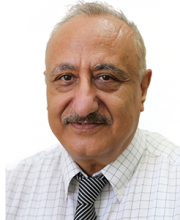You are here
Addiction to cell phones
Dec 06,2018 - Last updated at Dec 06,2018
Students at a private secondary school in Amman conducted a statistical study under my supervision for the purpose of calculating the average number of hours during which students and other people of different ages use their mobile devices on daily basis as a general weekly average. The study included 262 students, aged 12-17 years old, as well as a similar number of different age groups and professions.
The study revealed astonishing results that the average number of hours spent by students between 13-17 years of age ranged between 4 and 4.4 hours daily as a general average, but decreased to 2.30 hours for students aged 12 years. What was most interesting is that students of that age group were not allowed to bring their mobiles to school, which leaves the consumed hours after school time. Taking travelling time and basic necessities out of the left time, how much time is left for studying and socialising?
The average daily hours also increased amongst teachers in their 20s to more than five hours a day. However, the number of hours spent on cell phones for those who do not use their cell phones for work decreased amongst working age groups ranging from 25–50 years of age to two to three hours daily.
This phenomenon can be contributed to the fact that this age group spends much of its time working. However, after 50 years of age, cellular use increased again to an average of three to four hours, particularly for those who are retired and can afford more time on their mobiles. After 70 years of age, it dropped again for the myriad reasons known.
The results of this study show that students under the age of 13 are in a sensitive transitional phase to excessive cellular use. It is, therefore, necessary to focus on students of that age for divergence, by organising social activities, reading competitions and, perhaps, additional art and sports classes to keep students away from their cellular devices. The same method can be used with students of higher age groups in order to reduce their addiction hours.
This study in its first phase was conducted on students in a private school. Therefore, further studies should be conducted in other private and public schools to reach recommendations in order for the Ministry of Education to study the matter in an extended scientific manner to control the negative implications of extended use of mobile phones amongst students.
The research also recommends that Jordanian universities and institutes should guide graduate students towards conducting such studies and disseminating their conclusions within the community.
The writer is an energy and green buildings consultant. He contributed this article to The Jordan Times. [email protected]













